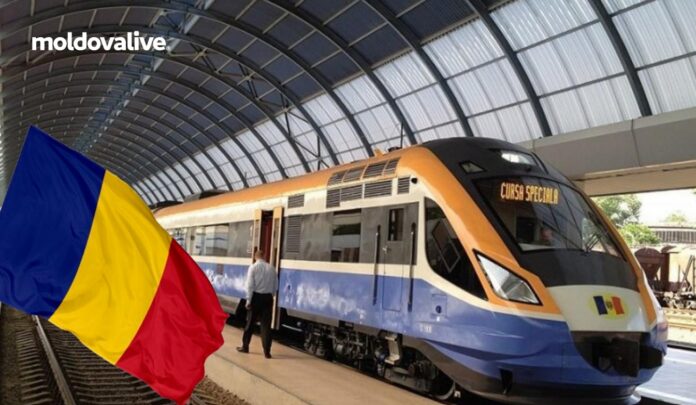Moldova and Romania signed a Memorandum of Understanding to reopen the Cantemir–Falciu rail connection. On Monday, April 14, the acting director of Moldova’s State Railway Company and the president of Romania’s National Railway Company “CFR.” signed the document in the presence of Deputy Prime Minister Vladimir Bolea and Romania’s State Secretary for Transport and Infrastructure, Irinel Ionel Scriosteanu.
The Cantemir–Falciu rail line is a crucial transport link between Moldova and the European Union. Reopening this line will improve freight traffic management, support export route diversification, and boost intermodal transport development.
Authorities from both countries will rehabilitate the railway infrastructure, including the rail bridge and border stations—Prut 2 (Moldova) and Falciu (Romania)—to resume operations.

“This memorandum marks the new route’s opening and Moldova’s integration into the EU rail network. Through the +PLUS budget, Moldova allocated 10 million lei to restore this railway segment. We will install both broad-gauge and European-gauge tracks. Soon, we’ll enable businesses to benefit from this project. We are fulfilling our commitment to citizens by implementing tangible projects—Falciu is one of them, and it will significantly improve connectivity,” said Deputy Prime Minister Vladimir Bolea.
FOR THE MOST IMPORTANT NEWS, FOLLOW US ON TWITTER!
Romania’s State Secretary for Transport and Infrastructure, Irinel Ionel Scriosteanu, emphasized that this initiative is a clear example of productive cross-border cooperation with long-term regional economic benefits.
“This is a key moment for rail system development between Moldova and Romania. Today, we visited the Falciu–Cantemir bridge, where preparatory work has begun. We’re strengthening several rail crossings and aim to use them for freight transport,” Scriosteanu noted.
Authorities closed the rail segment in 1992 due to landslides. The bridge over the Prut River, built in 1951, has deteriorated. Previous proposals to convert the bridge into road infrastructure never materialized.


